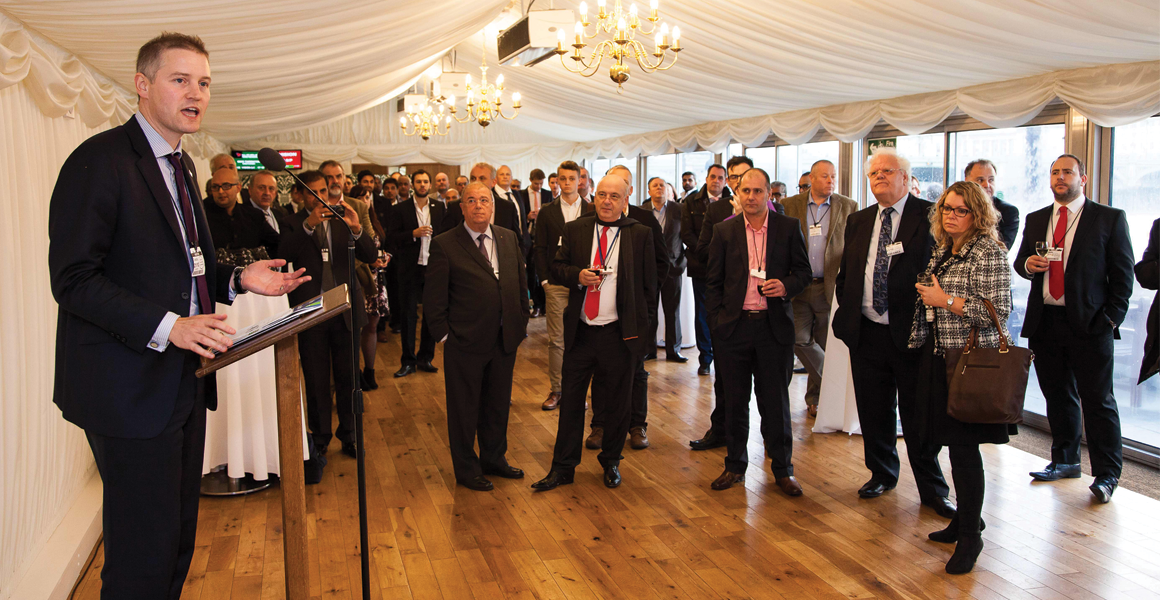Last week, the Association of Convenience Stores launched its Local Shop Report 2018. Its chief executive, James Lowman, sat down with RN to talk through the findings
The best news from this year’s report is the broader context: retailers are becoming more relevant to customers’ lives and that makes me fundamentally optimistic.
There are lots of little things in there. One thing was opening hours – last year I was worried that we would see a trend of retailers saying “costs are going up, we’re going to have to cut staff hours to make savings”. I would totally respect their decisions, but that would be a negative response to these cost increases.
Instead, retailers are looking to diversify their offer and revenue, with many services becoming more prevalent. Nearly a third of stores now include a post office – and the banking services they allow for. Meanwhile, almost half now offer a free-to-use cash point.
In a digital world, stores are the only physical hub in a lot of places. So, it’s all about adding more services and that’s how businesses are growing profits. It’s a positive message and the stats back it up.
Importantly, I would say we’re in a better position than when we launched the report in 2012. Then there was a real trend towards the out-of-town stores – you’d have said that it was a one-way bet that this was how the market would go.
Now, trends towards smaller households and more local shopping have really begun to play out. People aren’t going to out-of-town superstores as much anymore – they’re looking to eat and drink in a more bitty, broken-up sort of way.
This is where the idea of hyper-local retailing comes in. There’s a load of information, data analysis, thinking and expertise that retailers will be trying to access. But increasingly in a hyper-local market you are an expert in the area you serve. All the difficulties that multiples have around social media policies and so on – you can make those decisions yourself. Because of this, I think independent retail is the best place to be in the market.
That’s not to say there aren’t challenges and regulation, and overheads are likely to continue to grow.
One area is flexible working. It’s understandable why politicians are looking at this. You’ve got people working in the gig economy in structures that aren’t really catered for by legislation, people being told to be available for a long period of time and working a relatively short number of hours – these are real issues.
Our job is to present a very positive side to flexibility. Yes, there will be stores where staff want to work more hours, but can’t get them yet, generally, the flexibility is around them. They’ve got other commitments and it’s local. They haven’t got a great cost getting to and from the business, they’re not asked to go to multiple locations. It’s flexibility which, in general, works for both sides. I think we’ve got a good argument to run that we should be treated differently from the gig economy.
We also have the very real fact that crime has gone up – and that’s just not a perception – while we face greater environmental regulation, too.
Luckily this year, we’re able to show government just how important the convenience sector is to
the economy. Looking at the mail data from retailers on tax returns shows a very big number. The convenience sector contributed more than £8.8bn gross value to the exchequer last year, as well as over £3.6bn in direct and indirect taxes including business rates, corporation tax and excise duties. They need to listen to us.
I know there have been some big changes to our market driven by changes to the supply chain, but for Tesco to shell out £3.7bn for the right to serve independent retailers and foodservice operators through Booker means they clearly think independent retail has a future.
And our report agrees. It shows that we are more relevant to consumers than ever and there are far more positive signs than negative signs for the future of convenience.
James Lowman was speaking to Tom Gockelen-Kozlowski
Read similar: 10 talking points from the Local Shop Report



Comments
This article doesn't have any comments yet, be the first!